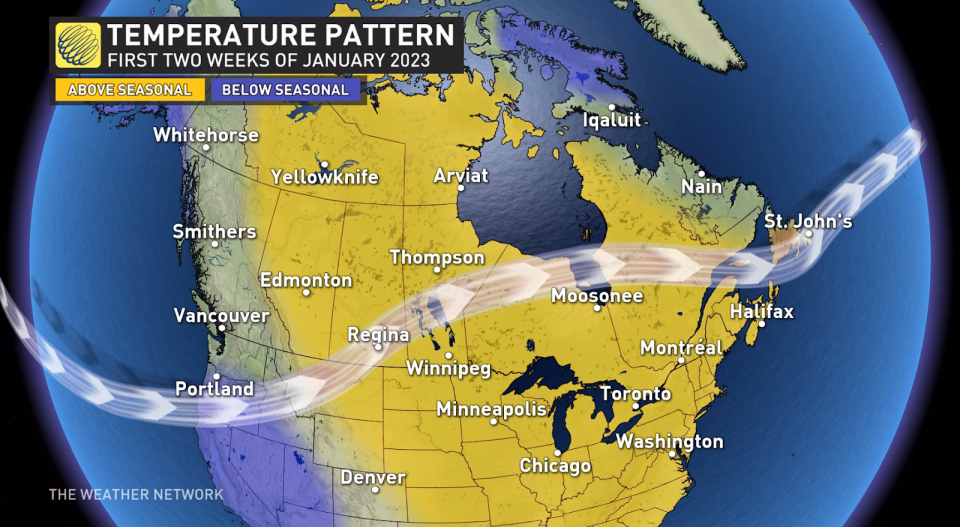This could be the first year the Rideau Canal Skateway doesn't open

An Ottawa tradition that has been going strong for nearly 50 years may be shelved this year, thanks to warmer-than-usual weather.
The Rideau Canal Skateway is a 7.8 kilometre stretch accessible 24 hours a day, seven days a week during a season that typically runs from January to March.
On average, the canal is open 50 days a year. The longest season was in 1971-1972, at 95 days.

Length of skating seasons in days on the Rideau Canal, as per the NCC. Graph created by Cheryl Santa Maria for The Weather Network.
The skateway hasn't opened for the 2022-2023 season, and if it remains closed, it will mark the first full-season closure since the skateway opened its doors in 1971.
More warm weather on the way
Temperatures are expected to climb again next week, with daytime highs above the freezing mark.
January was a warmer-than-usual month as well, which further compounded problems for the canal. The extended periods of cold weather needed to freeze the ice haven't manifested this year, at least not yet.

"Although not all the polar air has returned to Siberia, the frigid air that remains over northern Canada will have trouble sinking into eastern Canada over the next couple of weeks," explains Weather Network meteorologist Kevin Mackay.
But not all hope is lost, he says.
"There is potential for a return to the deep freeze for the last week of the month."

A message appearing on the Rideau Canal Skateway website as of February 10, 2023.
Tech to the rescue?
The National Capital Commission (NCC) is working on a joint project that could extend the skating season regardless of the weather, the CBC reports. In the future, interventions could begin in December, weeks ahead of the start of the season.
Potential innovations include a "slush cannon" that shoots water into the air that turns to slush when it hits the canal, creating a coating on the ice. A machine called a "thermosyphon" might be used to cool the water underneath the ice.

File photo of the Rideau Canal (Mark Spowart/ Getty Images)
"As long as we're below … the threshold, between minus five and minus 10, some of these technologies can help," Shawn Kenny, a professor with Carleton University's department of civil and environmental who is working with the NCC, told the CBC.
"But fundamentally, over a large scale such as this where we're eight kilometres in length, we really like to have minus 10 to minus 15 weather to help us out."
Thumbnail image created by Cheryl Santa Maria using graphical elements from Canva Pro.

